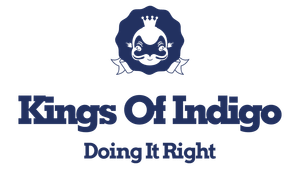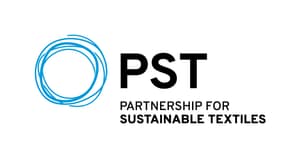The AGT chose to upload to the OAR in order to make its data more widely available to trade unions and NGOs, as well as benefiting from automating the process of matching across facility lists from different organizations.
NOTE: AGT’s use of Open Supply Hub started and ended when our model focused only on the apparel sector and we were called the Open Apparel Registry (the OAR). While our name has changed, the ability for multi-stakeholder initiatives to learn from and emulate this story has not.
Dutch Agreement on Sustainable Garments and Textiles published their aggregated supplier list on the OAR
From 2019 - 2021 (the overlapping years of the OAR’s and AGT’s existence), the AGT annually disclosed an aggregated supplier list on the Open Apparel Registry, on behalf of its member brands, including locations beyond Tier 1 of the supply chain. In its final year, AGT’s list contained nearly 4000 individual production locations.
The benefits of uploading to the OAR for a multi-stakeholder initiative
Saving time in processing and cleaning supplier lists
In 2017, the AGT first published its aggregated facility list on its own website, which consisted of over 60 individual brand lists. The process of deduplicating data across these facility lists from different companies was a very manual and time-consuming process. Once the AGT started using the OAR for this work instead, time was saved in finding matches between brand lists via the OAR ID, and the quality of the data was improved as non-existent or incomplete addresses were easily identified and matched to facility profiles in the OAR database.
Encouraging member brands to publish individual supplier lists
The AGT promoted the OAR to its membership and, at the end of 2021, 21 of their member brands were directly contributing their individual lists to the OAR as a result. These brands will continue to publish now that the AGT has ended. The ability for contributing brands to easily identify overlapping suppliers with other brands (and initiatives active at those suppliers) has contributed to individual companies being eager to publish on OAR, as it supports them in their due diligence process in a way that no other platform offers.
Ensuring supplier lists are accessible and actionable for stakeholders
When publishing their supplier list on their own website, AGT found that external stakeholders were not able to easily find and make use of that data, and therefore the transparency did not serve its intended purpose of actually addressing issues on a facility level. Publishing on the Open Apparel Registry introduced a new group of users to the AGT, resulting in outcomes like:
Civil society organizations gaining a better understanding of the supply chains of AGT’s signatories. The fact that OAR is easily searchable via geographical region saves a lot of time and effort and enables regionally-focused investigations.
Workers employed in the international garment and textile supply chains of the AGT’s signatories filing a complaint if their rights are violated, through the AGT.
Opportunities for cooperation and joint activities are identified through the OAR, like factory improvement programs or joint action on complaints. The aggregated AGT supplier list shows where production is concentrated and the Secretariat knows which production locations are shared by multiple signatories.
“The AGT chose to upload to the OAR in order to make its data more widely available to trade unions and NGOs, as well as benefiting from automating the process of matching across facility lists from different organizations - a previously manual and time-consuming process. We also saw a great benefit for our brand signatories, who could be much more easily identified and contacted if violations occurred at their supplier factories.”
Fleur Meerman, Senior Policy Advisor Dutch Agreement on Sustainable Garments and Textiles

The Dutch Agreement on Sustainable Garments and Textile (AGT) ran until the 31st December 2021. A broad coalition of businesses and other organizations worked together during the term of 5.5 years to improve working conditions, prevent pollution, and promote animal welfare in production countries.



